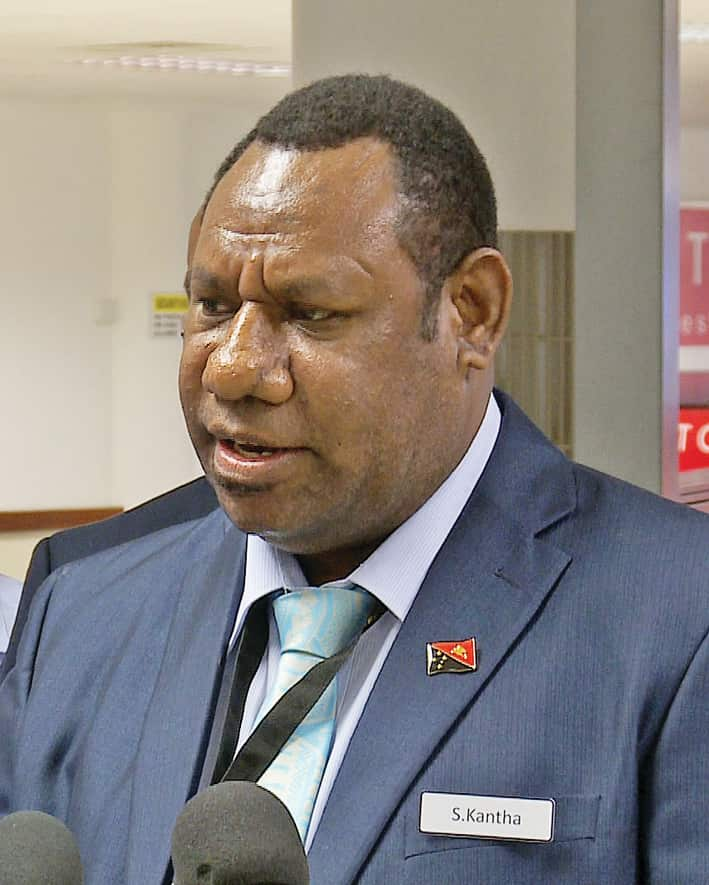Papua New Guinea's Chief Immigration Officer, Solomon Kantha, claims the Australian Department of Home Affairs has not consulted the PNG government about several recent deportations of PNG-born Australians.
The deportations, which have involved the cancellation of Australian passports, the revocation of citizenship and in some cases offshore detention, may put the Australian Government in breach of international law, according to one law expert.
“The Australian Department of Home Affairs has not contacted PNG Immigration and Citizenship Authority regarding these cases to verify the citizenship status of these individuals that were to be deported to PNG,” Mr Kantha told NITV News.
“PNG's position remains that any person that will be deported from Australia to PNG including Australian PNG-born residents or Australians with PNG-heritage will not be allowed entry into PNG until PNG Immigration and Citizenship Authority verifies their citizenship status,” said Mr Kantha.
“Those that were already recognised as Australian citizens and were issued Australian passports and voted in Australian elections are no longer PNG citizens. They cannot be returned to PNG and they must apply for PNG citizenship if they meet the PNG citizenship requirements.”

At least two PNG-born Australian residents have already been deported to PNG, including Torres Strait Islander Jerry Dau, a Boigu Island Traditional Owner, who after two years at Christmas Island detention Centre was deported to PNG in October last year. Another Torres Strait Islander, Daniel Charles was deported to PNG in 2017.
In response to questions about why it had not contacted the PNG government, the Australian Department of Home Affairs said in a statement: “Australia works with domestic agencies and international partners to remove non-citizens who have no lawful basis to remain in Australia.”
Many people living in Australia who were born in PNG prior to independence in 1975 – when it was still an Australian territory – automatically received Australian citizenship at birth.
However, after the Australian Government passed legislation in 1975, thousands of Australians had their citizenship revoked and were placed on Permanent Stay Visas, often without their knowledge.
After the Minister of Home Affairs’ 2014 amendment to the 501 section of the Citizenship Act, visas can be revoked and rights to reside in Australia can be removed on grounds of character.
The Department of Home Affairs has even stated being a formally recognised Traditional Owner of Country does not guarantee Australian citizenship.
When asked how a formally recognised Traditional Owner of Australian territory, registered on the Native Title Register, cannot be considered an Australian citizen, a spokesperson from the Department of Home Affairs told NITV: “A person’s citizenship status is determined with reference to the Australian Citizenship Act 2007 (the Act). A person’s status under other legislation, such as that concerning Native Title, does not have the effect of making that person an Australian citizen.”
This has resulted in Torres Strait Islander Traditional Owner, Daniel Gibuma, from Boigu Island who has spent last year in WA's Yongah Hill Immigration Detention Centre.
Several other Torres Strait Islanders are also being held in Yongah Hill. Only last month, PNG-born Australian, Edward Nolan, was taken into a detention centre in Brisbane and threatened with deportation to PNG.
In breach of Convention
Expert in citizenship law, Professor Kim Rubenstein from the Australian National University, believes the Australian Government may be in breach of its commitments under the 1961 Convention on the Reduction of Statelessness and potentially also Article 12(4) of the International Convention on Civil and Political Rights, which states that no one shall be arbitrarily deprived of the right to enter his or her own country.
“Anything that has a chance of increasing people's statelessness is also totally inconsistent with other aspects of the Citizenship Act, which builds into it a protection against statelessness,” Prof. Rubenstein told NITV News.
Prof Rubenstein said the Australian government has used the Australian Citizenship Act to err on the side of exclusion rather than inclusion.
“If a person’s real and effective nationality is Australian by virtue of their life experience, and Australia is the only place they have any real connection to, then the government should be looking at ways to use the Act to include them rather than exclude them,” she said.
Prof. Rubenstein said the Australian government has a long history stripping residents of their rights to live in Australia if there is some way of using the Australian Citizenship Act to exclude them from citizenship status.
“Unfortunately, it's not a new development but it appears to have been amplified in these cases.”
– This story has been written in partnership with Queensland regional newspaper Torres News.

